At the School of Information, we are horrified by recent and ongoing violence against the Black community and by the continuing legacy of racism and white supremacy in the United States. Our anti-racist work is ongoing, and we know this work will continue to be complex and challenging.
We asked several I School faculty members to recommend reading that can help us understand how information studies, data science, and cybersecurity intersect with race, racism, and anti-racism.
From The New Jim Crow to the Narrative of the Life of Frederick Douglass, an American Slave these works reveal the workings of systematic racism, inequality and bias in technology and academia, and our individual roles in being actively anti-racist members of society.
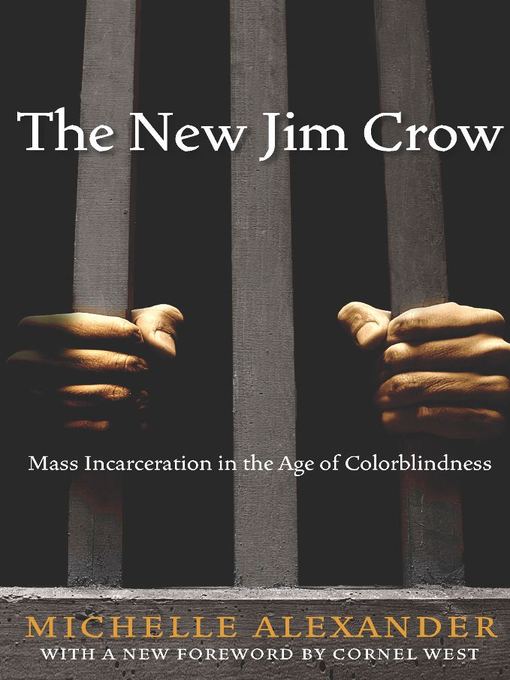 | The New Jim Crow (2010) recommended by Jenna Burrell“The New Jim Crow, by Michelle Alexander, is about criminal justice and mass incarceration as the new ‘color blind’ way that Black people (especially Black men) are systematically denied rights and kept in multi-generational cycles of poverty and exclusion.” |
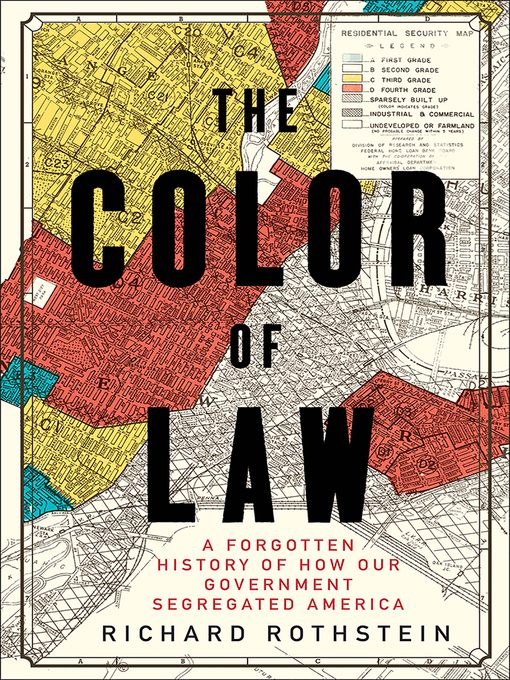 | The Color of Law (2017) recommended by Jenna Burrell“The Color of Law, by Richard Rothstein, deals specifically with housing and historically racist policies that today are still with us in the form of racial segregation by neighborhood and massive wealth inequalities between White and Black people.” |
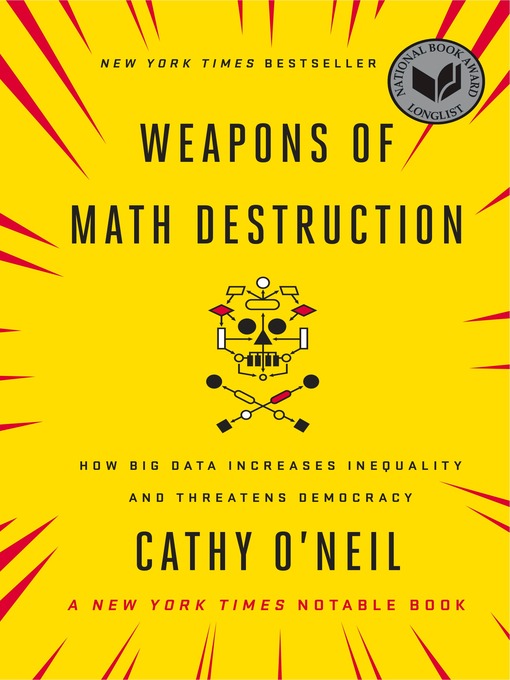 | Weapons of Math Destruction (2016) recommended by Jenna Burrell“My favorite book that looks at inequality (including racial inequality) and data science specifically is Weapons of Math Destruction by Cathy O'Neill. This book draws the connection between model building and data science and harsh and detrimental consequences, including the reproduction or exacerbation of racial inequality. You might see this book on the surface as very negative about data science (i.e. the title), but I think her larger point is that there are good models and bad ones and it is critically important to distinguish between the two and to make sure we are building the good ones. As a math Ph.D., the author knows what she's talking about.” |
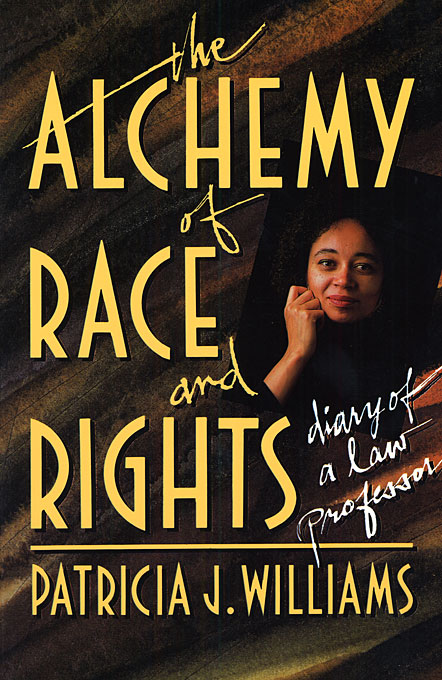 | The Alchemy of Race and Rights (1991) recommended by Deirdre Mulligan“I read Patricia Williams The Alchemy of Race and Rights during my first year of law school. I was in an ‘experimental’ curriculum (then called Section 3) that was testing a revised, critical take on first-year legal subjects. Instead of contracts and torts, we had Bargain, Exchange, and Liability; instead of constitutional law we had Democracy and Coercion, etc. and it had a Legal Justice Seminar. It was the first year this experimental section (now called Curriculum B at Georgetown) was running. Prof. Anita Allen taught the Legal Justice Seminar. It was brilliant. There was a set of Federalist Society members in our section who really resented the integrated, historical, critical approach, and in particular, couldn’t understand why they would be reading Ursula K. Le Guin's The Ones Who Walk Away from Omelas in their first-year legal curriculum. Anyway, I don't remember whether a chapter of The Alchemy of Race and Rights was assigned, or whether Prof. Allen recommended it to me. Either way, it is a brilliant book that helped me think critically about race and rights and shaped the path of my legal education and law career. I was thrilled to interview Patricia Williams and Cynthia Dwork for the Simon's Institute last summer during Wrong at the Root: Racial Bias and the Tension Between Numbers and Words in Non-Internet Data, a program they co-organized which like Prof. William’s book left me awed and full of new perspectives and ideas. |
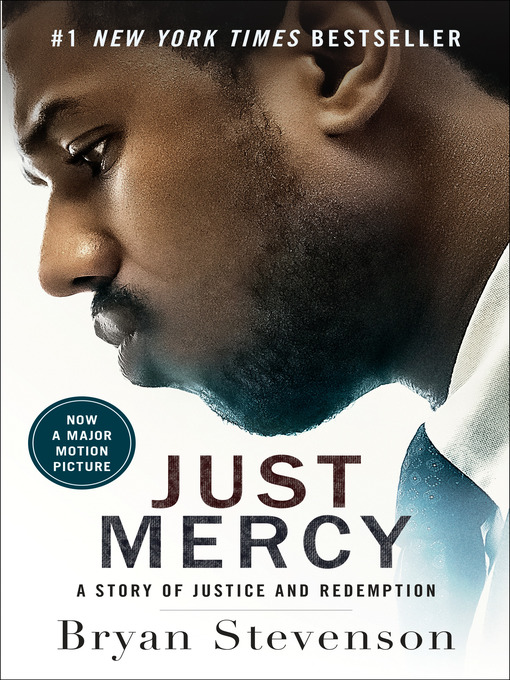 | Just Mercy: A Story of Justice and Redemption (2014) recommended by Deirdre Mulligan“Bryan Stevenson’s Just Mercy is a must-read. It chronicles the way our justice system is anything but just. Stevenson is a tremendous advocate for both individuals and social reforms. If this book doesn't move you to push for reforms to our current approaches to policing and punishment I don't know what will. If you are looking for an organization to support, consider the Equal Justice Initiative.” |
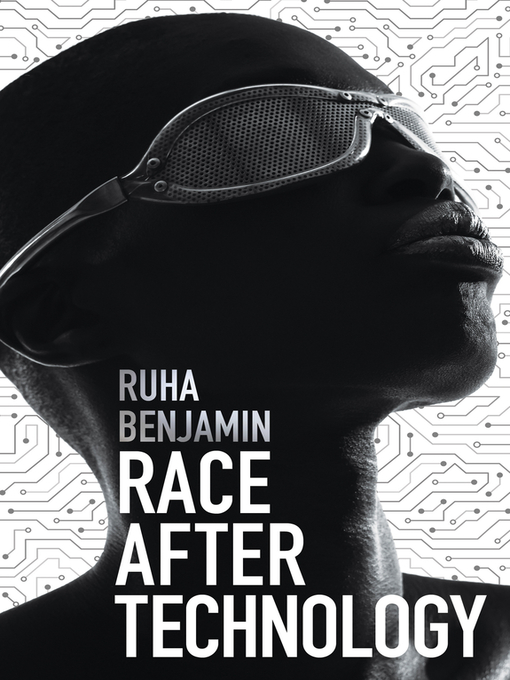 | Race After Technology: Abolitionist Tools for the New Jim Code (2019) recommended by Morgan Ames“Race After Technology: Abolitionist Tools for the New Jim Code by Ruha Benjamin, provides a detailed and incisive account of how racism is engineered into technical systems, and how these systems entrench, obscure, and extend racial disparities, which Benjamin refers to as the ‘new Jim Code.’ Benjamin closes with a strong call to action regarding solidarity and justice. She also gave a talk at UC Berkeley last fall, co-sponsored by CSTMS, AFOG, the Haas Institute for a Fair and Inclusive Society, and CITRIS (and she got her Ph.D. here at Cal!). Her edited volume Captivating Technology is also an excellent compilation of scholarship on how technology embodies racist carceral logics, and the potential to upend them. |
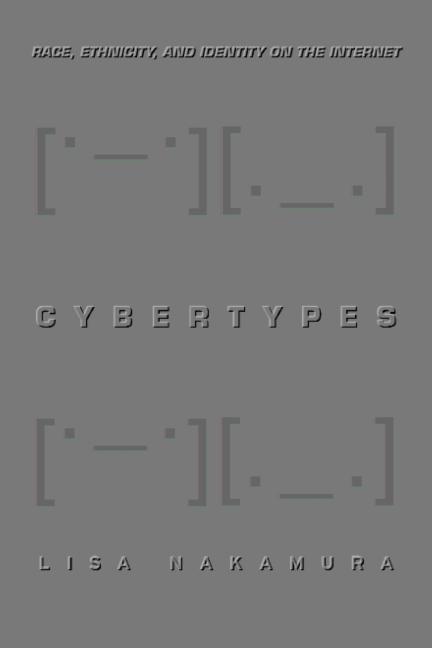 | Selected works by Lisa Nakamura recommended by Morgan AmesCritical media scholar Lisa Nakamura has spent her whole career studying race, gender, sexuality, and new media, particularly the Internet. She happened to be the first scholar I read who tackled the topic of race in tech head-on (though I’ve since expanded my repertoire of scholars greatly!), and she remains a go-to for me on questions of racialized and intersectional identities online. I especially recommend her classic Cybertypes: Race, Ethnicity, and Identity on the Internet. Also check out Digitizing Race: Visual Cultures of the Internet and her edited volumes including Race After the Internet (with Peter Chow-White). |
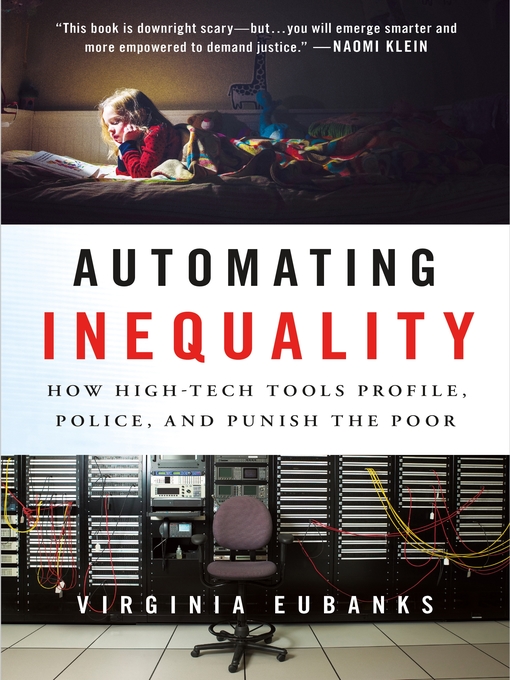 | Automating Inequality: How High-Tech Tools Profile, Police, and Punish the Poor (2018) recommended by Morgan AmesAutomating Inequality: How High-Tech Tools Profile, Police, and Punish the Poor by Virginia Eubanks implicates not just race but class and gender, and implicates not just police but a whole range of under-resourced and ultimately punitive social services in a sweeping and illuminating critique of automated decision-making. Eubanks also gave a talk at UC Berkeley co-sponsored by CSTMS, AFOG, and CITRIS in 2018. Eubanks’s previous book, Digital Dead End, explores similar themes through a social-justice-oriented tech training program working to increase diversity in the tech world. |
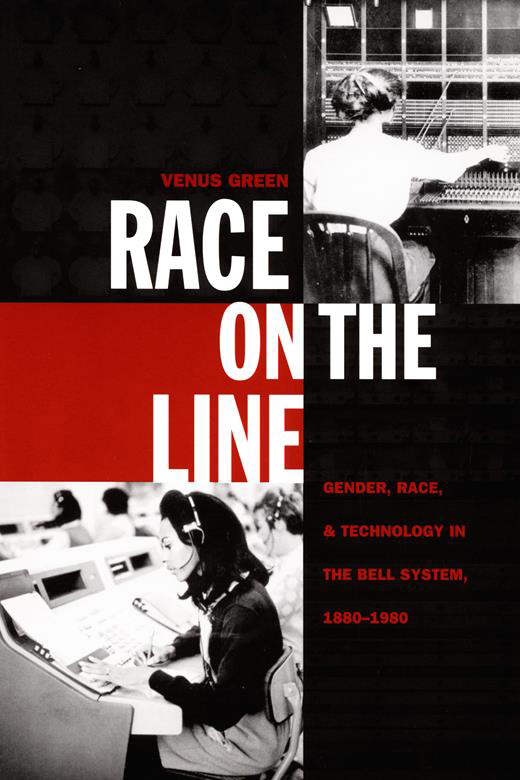 | Books on the histories of technology recommended by Morgan AmesIf we go into histories of technology, there’s a whole set of great books! I personally love Venus Green’s Race on the Line: Gender, Labor, and Technology in the Bell System, 1880-1980 for a racially-focused social history of switchboard operators. Rayvon Fouche’s book Black Inventors in the Age of Segregation centers the lives and work of three Black inventors and explores the social contexts in which they worked. It’s a great take-down of the “lone inventor” mythology as well as a pointed critique of the massive institutional and social barriers that these Black inventors faced. |
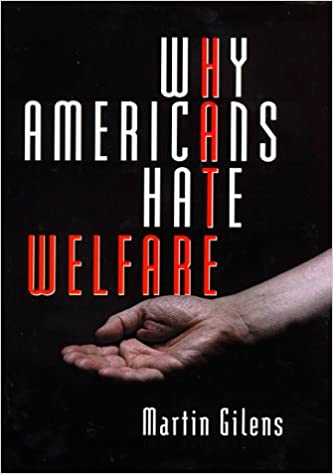 | Why Americans Hate Welfare: Race, Media and the Politics of Anti-Poverty Policy (1991) recommended by Mike Rivera“In Why Americans Hate Welfare, Martin Gilens discusses how attitudes about race influence one's opinion on welfare policy, and how the media frames discussion about poverty in terms of race.” |
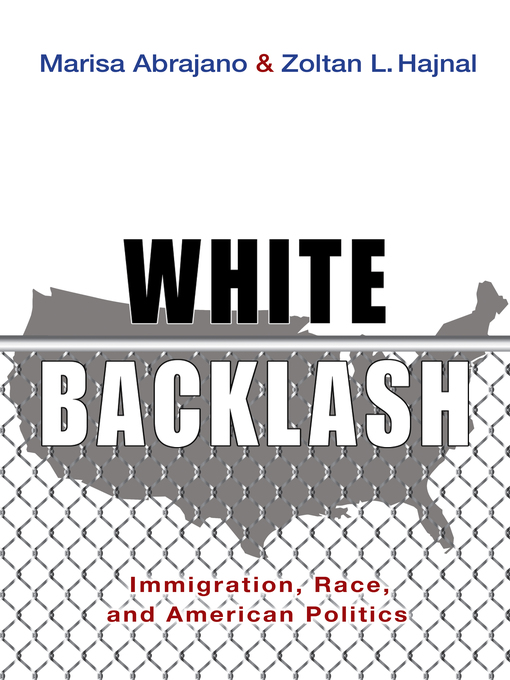 | White Backlash: Immigration, Race, and American Politics (2015) recommended by Mike Rivera“In White Backlash: Immigration, Race, and American Politics, by Marisa Abrajano and Zoltan Hajnal, the authors help one understand immigration in America through the lens of ethnocentrism. The book explores the effect ethnocentrism has on partisanship and voting. Furthermore, the text discusses how media coverage influences public opinion.” |
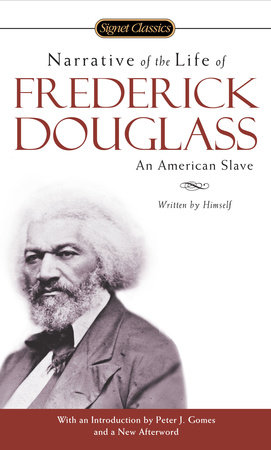 | Narrative of the Life of Frederick Douglass, an American Slave (1849) and The Autobiography of Malcolm X (1964) recommended by Paul Duguid“I sense that this bookshelf is looking for contemporary works, but I teach an undergraduate class on the history of information. To put the notion of ‘literacy’ into historical context, we look at two primary, historical accounts that help reveal invisible racial privilege embedded in ideas like literacy, which it is easy to believe has long been open to ‘all.’ Separated by 115 years, the commonalities between these two accounts, Narrative of the Life of Frederick Douglass, an American Slave, by Frederick Douglas, and The Autobiography of Malcolm X by Malcolm X & Alex Haley, remind us how easily we can delude ourselves into believing that we have long ‘solved’ such problems.” Check out the Autobiography of Malcolm X ebook from the University Library |
 | Racing to Justice: Transforming Our Conceptions of Self and Other to Build an Inclusive Society (2012) recommended by Paul Duguid“The euphoria around the ‘post-racial society’ that greeted the election of President Obama may look curiously naive with hindsight, but powell (Berkeley Law) importantly pushed back against this too readily accepted notion at the time, examining the historical endurance of structural discrimination despite apparently ‘liberal’ political transformation. (He looks, for example, at the trenchant racism in such ‘emancipatory’ institutions as the New Deal Federal Housing Administration and the Fair Housing Act). In Racing to Justice: Transforming Our Conceptions of Self and Other to Build an Inclusive Society, by john a. powell and David R. Roediger, powell shows how deeply race and white privilege is entrenched in our society, helping us to consider by extension how deeply it is likely to be embedded in the tools we build.” |
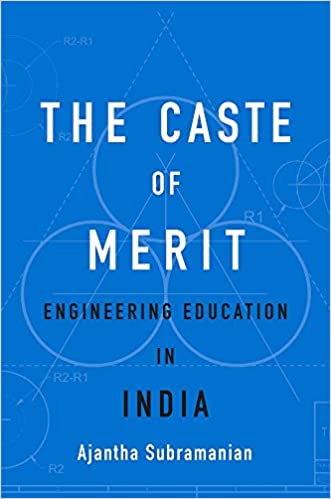 | The Caste of Merit: Engineering Education in India (2019) recommended by Paul Duguid“Coming up to the present, I have just read with some School alums this important book, The Caste of Merit: Engineering Education in India, by Ajantha Subramanian, which takes us from colonial India to Silicon Valley through an analysis of the enduring assumption that racial, class, and religious divisions can be overcome by education, which underwrites liberal notions of ‘meritocracy.’ Subramanian shows us how elite education can as readily further those divisions.” |










